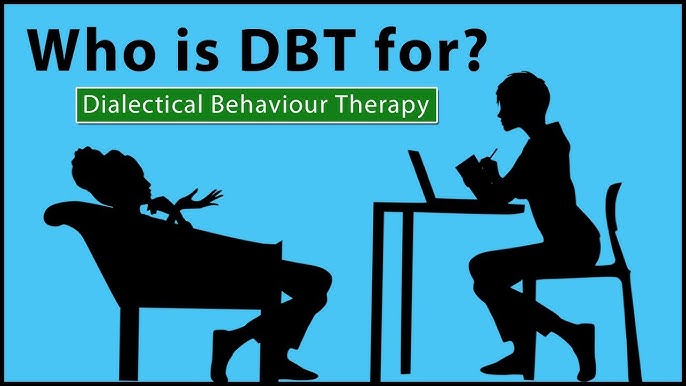In pursuing a fulfilling life, our emotional well-being plays a pivotal role. Navigating the complexities of our emotions can be challenging, but there’s a beacon of hope in the form of Dialectical Behavioral Therapy (DBT). Sherief Abu-Moustafa explains this holistic approach to emotional well-being has gained significant recognition for its transformative effects on individuals facing emotional turmoil. Let’s delve into the world of DBT, exploring its origins, principles, and how it empowers individuals to lead more balanced lives.
Understanding DBT: A Brief Overview
Developed by psychologist Dr. Marsha M. Linehan in the late 1980s, DBT emerged as a response to the limitations of traditional cognitive-behavioral therapy (CBT) in addressing emotional dysregulation. Initially designed to treat individuals with borderline personality disorder (BPD), DBT has since proven effective for various mental health conditions, making it a versatile and inclusive therapeutic approach.
The Core Principles Of DBT
At the heart of DBT lie four key principles: mindfulness, distress tolerance, emotion regulation, and interpersonal effectiveness. These principles work harmoniously to provide individuals with a comprehensive toolkit for managing their emotions and improving their well-being.
Mindfulness: The Foundation Of DBT
Mindfulness, a cornerstone of DBT, involves cultivating an awareness of the present moment without judgment. Sherief Abu-Moustafa says this practice empowers individuals to observe their thoughts and emotions without being overwhelmed. By embracing mindfulness, individuals can break free from automatic reactions and respond to situations with intention and clarity.
Imagine sitting in a garden, observing the flowers without dwelling on the past or worrying about the future. This analogy captures the essence of mindfulness in DBT, it’s a gentle reminder to savor the present moment and disengage from the chaos of our minds.
Distress Tolerance: Riding The Emotional Waves
Life is a rollercoaster of emotions, and DBT equips individuals with the skills to ride the waves of distress without succumbing to destructive behaviors. Distress tolerance encourages acceptance of reality and teaches coping mechanisms to weather challenging moments. From breathing exercises to self-soothing techniques, individuals learn to navigate the stormy seas of emotions with resilience and grace.
Emotion Regulation: Finding Balance In The Storm
Emotion regulation involves understanding and managing intense emotions effectively. In DBT, individuals explore the root causes of their emotional responses and develop strategies to modulate their feelings. By fostering emotional balance, individuals can avoid impulsive reactions and make choices aligned with their long-term well-being.
It can be useful to think of emotion regulation as a skillful captain navigating a ship through turbulent waters. It helps to work on acknowledging the waves and steering towards calmer seas. DBT empowers individuals to become the captains of their emotional ships, guiding themselves through life’s unpredictable currents.
Interpersonal Effectiveness: Navigating Relationships With Skill
Healthy relationships are vital for emotional well-being, and DBT recognizes this by emphasizing interpersonal effectiveness. This principle equips individuals with the tools to communicate assertively, set boundaries, and navigate relationships with skill and compassion. Individuals can build a robust support system that enhances their emotional resilience by fostering healthy connections.
Final Thoughts
In conclusion, Dialectical Behavioral Therapy (DBT) provides a comprehensive solution for those seeking to manage emotional turmoil. Conceived by Dr. Marsha M. Linehan, DBT moves beyond the constraints of traditional cognitive-behavioral therapy by emphasizing mindfulness, distress tolerance, emotion regulation, and interpersonal effectiveness. These four key principles equip individuals with a diverse set of tools to navigate their emotional landscape and cultivate healthier relationships. DBT’s holistic approach allows individuals to confront and understand their emotional responses, empowering them to steer their own emotional ships through life’s unpredictable currents. Its transformative power lies in its ability to foster emotional balance and resilience, thereby setting the stage for a fulfilling, emotionally healthy life.
